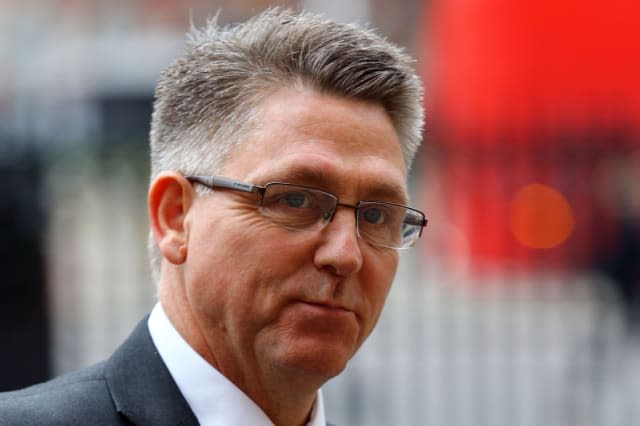Anti-slavery commissioner calls for 'urgent' improvement of border vigilance

Britain's anti-slavery commissioner has warned thousands of victims may be slipping through the net after an inspection uncovered a catalogue of flaws in arrangements for tackling the crime at the border.
Kevin Hyland said an "urgent improvement" was needed as a watchdog raised concerns about Border Force's approach to modern slavery.
A report from Chief Inspector of Borders and Immigration David Bolt found targets for identifying potential victims at the border since 2014 have been "modest", while the number of suspected traffickers identified and referred for investigation have been "low by any standards".
Inspectors were also told that training was treated as a "tick-box exercise", while some officers reported feeling under pressure to process arriving passengers quickly in order to meet queue time targets.
When the government unveiled its Modern Slavery Strategy in 2014, Border Force was recognised as the lead for targeting and disrupting traffickers and identifying potential victims at the border.
Research suggests that up to 13,000 people may be affected by modern slavery in the UK, while 3,266 potential victims were referred to a national hub in 2015.
In this context, Mr Bolt's report pointed out that Border Force's target to identify 313 potential victims of modern slavery in 2015/16 "appears modest".
It could not be established whether any targets are being met because of the "poor standard" of record keeping and the use of different datasets.
As well as refusing entry to suspected traffickers, officers can refer cases to a separate team to consider whether to arrest, investigate and possibly charge an individual.
Figures indicated Border Force identified 48 suspected traffickers in 2014-15 and a further 58 in 2015-16.
Over the two years 37 suspects were referred to the immigration enforcement crime and financial investigation unit, while there were just two successful prosecutions.
Mr Hyland said the inspection revealed pockets of good practice, but also identified areas of concern.
He said: "Identification of both victims and criminals needs major improvement.
"There is a strong chance we are missing thousands of victims of modern slavery at our borders.
"We must urgently improve our response, regardless of how challenging it is. Border Force are being let down by their own lack of data recording and inconsistent training of staff.
"Thus far, officers have had outdated, brief or no training at all on modern slavery and human trafficking."
Mr Bolt said the Home Office has accepted the majority of his recommendations, and has committed to making a number of improvements over the next few months.
Modern slavery, which can encompass forced work, human trafficking, domestic servitude, has been described by Prime Minister Theresa May as a "scourge on our society".
A Home Office spokesman said: "We thank the Inspector for his report and are already taking action to address key issues raised.
"This Government is leading the world in confronting the scourge of modern slavery including through the ground-breaking Modern Slavery Act.
"Border Force has a key role to play in identifying and protecting victims and stopping the callous criminals who exploit them.
"This work takes place not only at the UK border but in targeted operations at sea and working with law enforcement agencies at home and around the world.
"But we are determined to do more and continue to improve our response."


